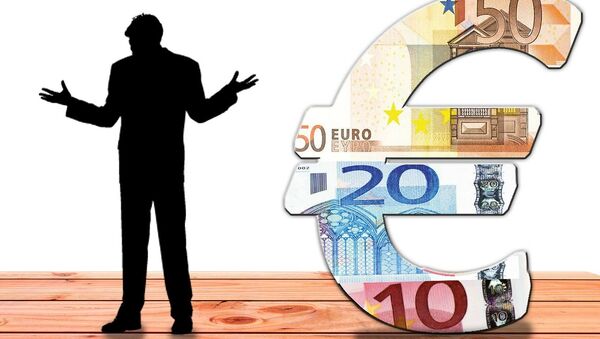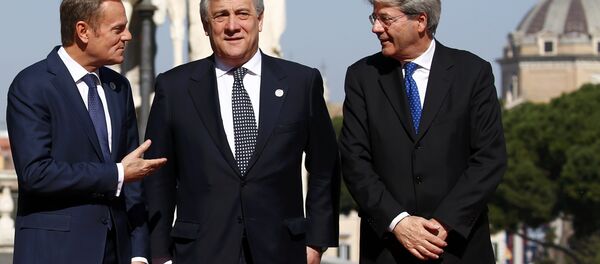Essentially, for a single currency to work, there must be a common fiscal policy, which includes common policies on taxation. This is not the case within the eurozone and has led to a north-south divide within the currency area.
Central to the issue is the Stability and Growth Pact, which requires all eurozone members to avoid excessive budget deficits — greater than 3% of GDP. However, several states have crashed the barrier — including Spain and Portugal — leading to a loss of confidence in the currency as a whole.
Now the EU has issued its view on the state of the euro describing it as "one of Europe's most significant and tangible achievements. It has helped our economies to integrate and has brought Europeans closer together."
Economic & Monetary Union: reflection paper to build a consensus on how to take on challenges ahead https://t.co/q4rj4C8oB7 #DeepeningEMU pic.twitter.com/PuohbYXrmD
— European Commission (@EU_Commission) 31 May 2017
However, MEPs have slammed the Commission's rosy view of the euro as "hugely flawed" They argue that the paper shows a capitulation on the part of the commission given the huge economic problems confronting the eurozone.
"The response of the European Commission once again reflects a capitulation in the face of the economic problems within the eurozone. Instead of carrying out political reforms, this measure once again aims to breach the non-aid clause in the European Treaties. In fact, the proposed European Safe Assets are a new edition of the eurobonds, which are intended to mutualize the eurozone debt," said Bernd Lucke, an MEP within the European Conservatives and Reformists (ECR) Group.
'#DeepeningEMU Reflection Paper brings the same old stuff in a new form. We reject #Eurobonds & #Eurozone Finance Minister' says @BerndLucke pic.twitter.com/5HHllPDFM6
— ECR Group (@ecrgroup) 31 May 2017
"The Commission is proposing various variants for the further development of the monetary union. An important option is missing: the dissolution of the euro and the return to flexible, national currencies," said ECR MEP Hans-Olaf Henkel wants to go further.
"As a first step, Greece should be offered a generous debt cut in return for leaving the eurozone. This allows the Greeks to regain economic growth, saves the so-called donor countries the financing of future rescue packages, and it does not cost the creditors anything, because the money is irrevocably lost anyway," he said.




